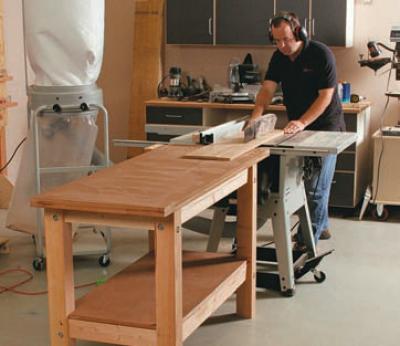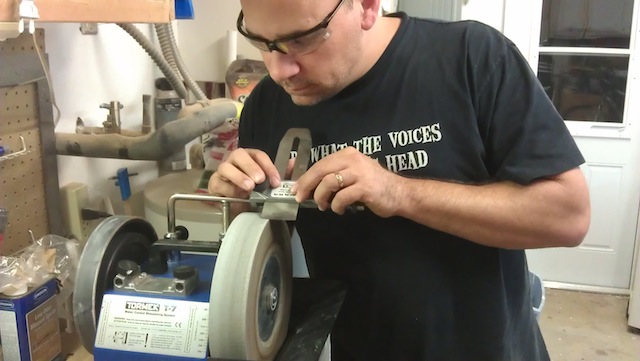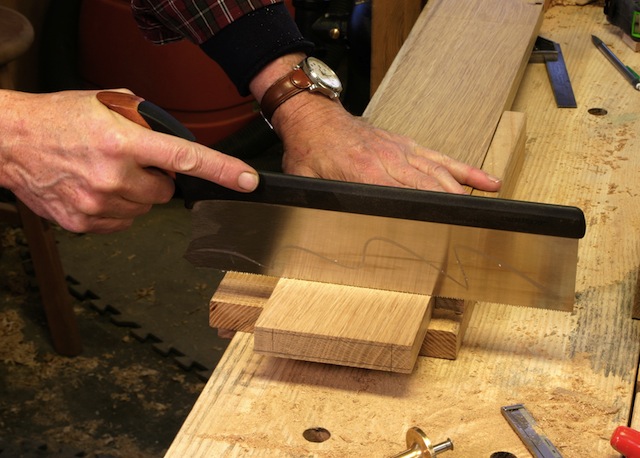I have a couple of friends who are looking to buy new houses. And, it seems as if every day, I get an update on how the house hunting is going. They talk about the beautiful, large rooms. The big yards. The big windows that let in lots of Florida sunlight.

When it comes to house shopping those are – of course – some of the things that people look for. But, there are other things that aren’t seen, but also need attention. What kind of wires are behind those walls? Is there lead paint or asbestos in the house? Most importantly, how strong is the foundation?
Sure, it’s not the sexiest part of a house, but a strong foundation gives all of the other stuff in the house the right place to live. It gives you the piece of mind to paint and decorate the heck out of that house, the assurance that your walls won’t buckle, crack or sag and the peace of mind that the entire structure won’t fall over in the first big blow.
The same thing goes on with woodworking. Oh, sure, I think everyone wants to start off building heirloom quality furniture right off the bat, and it can happen. But, building successfully is much easier if you have a strong set of foundation-level skills to build your woodworking future on. I have identified my top three here, and I would love to hear your ideas…
 1) Safety. A table saw blade can rip through hard maple with ease. A finely honed chisel can take paper-thin parings off of a piece of white oak. A router can cut a beautiful profile on the edge of a bubinga board. If these tough woods can be cut with ease, what do you think they can do to flesh and bone? When anyone starts woodworking, they should always keep safety top of mind. This includes knowing how to safely operate power tools, wearing eye and hearing protection and understanding that well-maintained tools are less likely to hurt you. Remember, it’s difficult to do woodworking if you have a dozen stitches in your hand because you weren’t careful.
1) Safety. A table saw blade can rip through hard maple with ease. A finely honed chisel can take paper-thin parings off of a piece of white oak. A router can cut a beautiful profile on the edge of a bubinga board. If these tough woods can be cut with ease, what do you think they can do to flesh and bone? When anyone starts woodworking, they should always keep safety top of mind. This includes knowing how to safely operate power tools, wearing eye and hearing protection and understanding that well-maintained tools are less likely to hurt you. Remember, it’s difficult to do woodworking if you have a dozen stitches in your hand because you weren’t careful.

2) Sharpening. Sharp tools are a pleasure to work with. Dull tools can mar your work, potentially hurt you and make a pleasant day in the shop a real pain in the patootie. That’s why you want to stack the odds of building a great project in your favor. Sharp tools can do that. Learning how to sharpen can seem like scrubbing the floor, but you will love the results. Besides, some of my best shop ideas come when I am working at my Tormek, thinking about how I am going to take my project to the next step. Cleaning your bits and blades is just as important.
3) Precision. Knowing how to measure properly is awesome. Sometimes, you don’t even need a tape measure or other device to know how long to cut a piece, because you can measure it exactly from the project, eliminating a potential error. Knowing how to cut, pare or plane to a marked line also ensures that the pieces you cut will fit just as you want them to. Believe me, remilling parts and starting from scratch are things that take a lot of time and always prove frustrating…
Developing these foundation skills may seem like hard work and drudgery, but believe me, if I hadn’t glossed over these three steps while starting back in 1998, I would have been a much better woodworker in considerably less time.
And, if you do make a mistake, just remember; if you aren’t making mistakes, you aren’t really learning. Believe me, we all make them.
Now, for my favorite part of Get Woodworking Week – today’s bounty of articles from other talented woodworking bloggers:
- Giant Cypress: The two things no one tells you about sharpening
- The Renaissance Woodworker: Don’t let experience level stop you
- Hock Tools: Get Woodworking Week 2014



Tom I think your three top items are correct. But, on Safety you need a safe work area, meaning the floors should not have stuff laying around that you could trip over. For me the last thing out is a light sweep of the floor.
I am with you very much on sharpness. The safest tool is a sharp tool.
Have Fun in the shop.
I think you hit three of the most important Tom.
I’d add patience.
I made plenty of mistakes early on because I was always in such a hurry to finish the project.